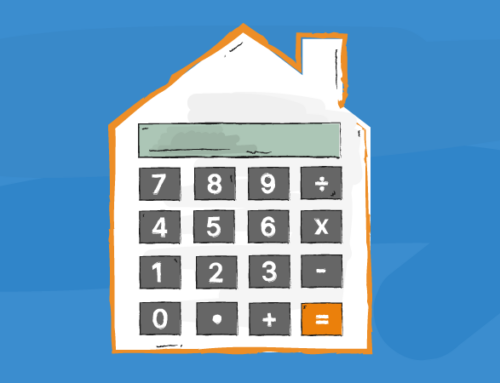20 tips for landlords looking to work towards a successful 2020

Rather than leaving your tenants thinking “new year, new landlord”, why not take a look at what changes you can make to improve your lettings career?
As we’re still feeling the excitement of beginning a new year and a new decade, we want to share with you our 20 tips for landlords looking to work towards a successful 2020:
1. Prepare for periodic inspections
We’re always saying how important regular inspections are for a let property. We don’t mean stopping by every week, but scheduling them in with your tenants so that they know when to expect you. If you can start the year by agreeing on specific dates for periodic inspections, you’ll already be off to a more organised start.
Take a look at our guide for more information on how to perform a periodic inspection.
2. Take notes for reference
Take a pen and notepad or use an app on your phone to make notes during your inspections. Make sure nothing has been missed or forgotten so that it doesn’t end up being a waste of time for you or your tenant. You’ll then not only have a clear idea of any issues but also have a record for how well the tenants have been looking after the property.
3. Send requests via email
Writing out any correspondences as an email makes for a better way of keeping track. Leaving a note or sending a letter leaves you no record. You could make a photocopy or scan it, of course, but there is still no proof that the tenant ever received it. With an email, you not only have that record in the ‘sent’ folder of your account, but it’s also much easier to find a specific correspondence by using the search function.
4. Respond to tenants ASAP
If you receive an email or a text message from a tenant, there’s no need to leave them waiting too long. Be courteous enough to let them know that you have received their message and are looking into any requests. Reassuring them that you are aware of the situation will put their minds at ease.
5. Review your letting agent
Have a think about who you are paying to manage your property. Are they charging a fair price and are they fulfilling the tasks expected of them? If you pay your agent to perform periodic inspections on your behalf, it may be worth checking in with the tenant to confirm that they are actually doing so. The last thing you want is for your tenants to feel you are ignoring any maintenance issues when you never found out about them in the first place.
Letting agents are legally required to be a member of a government-approved letting agency redress scheme. Before choosing a letting agency, be sure to do your research and check that they are registered!
6. Stay on top of property maintenance
As soon as you become aware of anything that needs fixing in the property, make plans to have a professional take a look. Whether it’s a broken boiler or loose floorboard if it’s down in the tenancy agreement as your responsibility then get it sorted. The likelihood of the problem getting worse will increase the longer you leave it, which may end up costing even more to fix.
7. Evaluate who you use for maintenance repairs
It comes in useful to have a trusted professional to call in an emergency. Having a good relationship with a local tradesperson can help you get better rates as a returning customer. However, you should always gather a few quotes to compare, so that you know you’re still paying an acceptable price for the work being done.
Spend some time looking into government-approved registration schemes, like you would with a letting agent. For example, a Gas Safe registered engineer is guaranteed to be qualified to work legally on gas appliances, such as your boiler.
8. Prepare the property for 1st April 2020
On April 1st 2018 it became illegal for a landlord to begin a new tenancy if the let property had an Energy Performance Certificate (EPC) rating of F or G. Now this will also apply to renewed tenancies as well. The highest rating is A (and you may have guessed that this means B, C, D or E are also acceptable ratings).
As this is about the energy efficiency of your property, changes you can make range from installing a new boiler to improving loft insulation. We’ve provided further tips on this in a previous article.
9. Research energy bill suppliers
If you include the cost of energy bills with the rent then check up on what other suppliers are offering. Once your contract is up with your current supplier it may save you/your tenant a fair amount by switching. You never know you might even get a better offer to convince you to stay put!
10. Make a note of important dates
Have everything written down, whether it’s on the calendar in your kitchen, in a diary, or on your phone. Set up reminders for when important dates are approaching, to save having to track down the information in old emails and letters. This will help you to prepare for renewals for energy suppliers and tenancy agreements, appliance maintenance checks and more.
11. Review your tenancy agreements
The law can change at any time, and you will want to make any changes to your tenancy agreements to reflect this, in order to remain compliant.
With the Government planning to review Section 21, you’ll thank yourself later for making preparations. This is also relevant to any eviction template notices you may have saved.
12. Update contact details
Have you recently checked that you have the right phone numbers and email addresses for your tenants and letting agent? If you’ve not been in touch for a while, it’s a good idea to confirm everything is still correct. The same goes if you’ve changed any details – be sure to let them know.
13. Are you providing your tenants with everything they need?
There’s a vital checklist that landlords should follow when starting a new tenancy. There are certain documents you legally need to provide to tenants when they start renting from you.
As well as legal requirements, remember to sort out any extras that will help the tenancy run as smoothly as possible, such as swapping contact details and arranging inspections in advance!
14. Do a thorough clean between tenancies
We know void periods mean no rent is coming in, but they can be useful. Take advantage of any gaps between tenancies and give the property a good clean. A vacant property will allow you to get in every corner in every room and make sure it’s ready for the next tenants.
15. Refresh properties lacking in interest
If you are struggling to find tenants for your property, is it time to give it a revamp? A fresh coat of paint and new carpet can make a massive difference to those after a modern and inviting place to live.
This doesn’t have to be expensive. Search recycling websites such as Gum Tree for unwanted decorating materials and second-hand (but good condition) furniture. Equally, Facebook Marketplace or local selling groups are handy for finding cheap or unwanted items that can save you money.
16. Take time to find out what’s going on in the industry
There are specific news sites, such as our sister company Landlord News, dedicated to keeping you up-to-date with the latest lettings industry information. Look out for useful guides, newsletters and social media pages to help keep you in the know.
There will be local laws introduced that you may not always be aware of, so keeping in touch with your Local Authority will help. Sometimes meetings may also take place to discuss recent and upcoming changes to the area affecting landlords and homeowners.
17. Organise your receipts
Whether you submit your Self Assessment tax return yourself or use an accountant, you’ll make the entire process a lot easier if you keep a clear record of money spent and received throughout the year. Once you have a filing system in place it’s simple to stay in the habit of keeping it up-to-date.
18. Review your Buy-to-Let mortgage
Stay on top of interest rates and figure out what’s best for your investment. You might be able to save money by switching over to a better deal. If you have a mortgage advisor then now would be a good time to talk and prepare for the future. The better the rate of your Buy-to-Let mortgage, the more rewarding being a property investor and landlord will be in the long-run.
19. Reassess rental yields.
Don’t get into a rut with your property, or, even worse, in debt. If your let isn’t producing the rental yields you’d hoped for then reassess whether it’s worth it. Are your rent prices in line with the going rate of the area? Would it be worth selling up and reinvesting elsewhere? Have a think about whether you’re happy with the income it’s providing or if now is the time for a change.
20. Plan some time off
This one we cannot stress enough! Don’t forget to take a break. Knowing that you’ve got some downtime to look forward to will help you stay focused and motivated in your work. Be sure to let your letting agent and tenants know in advance that you will be unavailable during certain dates.
That’s it for our 20 tips for landlords looking to work towards a successful 2020. Perhaps next year we’ll take it up a notch and give you 21… We wish you all the best for the year ahead and hope that it is a successful and enjoyable one!
Disclaimer: The opinions and views expressed in the above article are those of the author only and are for guidance purposes only. The author disclaims any liability for reliance upon those opinions and would encourage readers to rely upon more than one source before making a decision based on the information.




